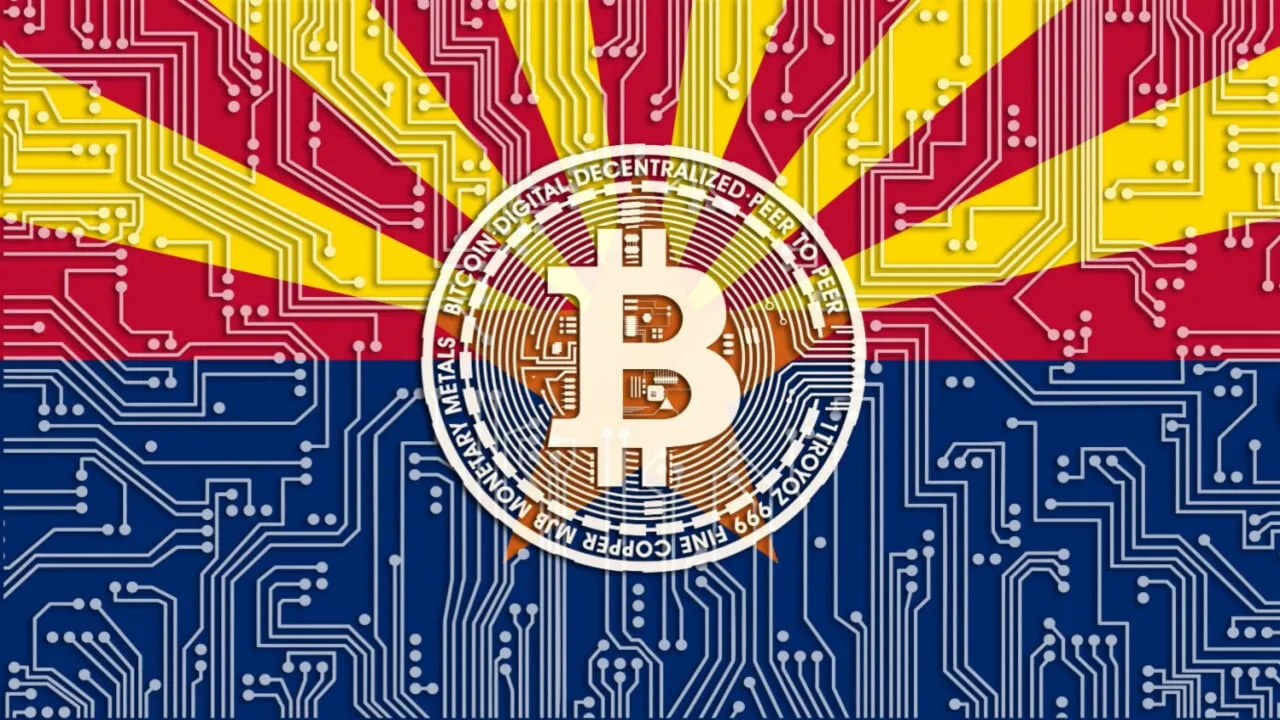Arizona lawmakers have passed two related bills that could make the state a leader in state-level government cryptocurrency investing, provided they are signed into law by Governor Katie Hobbs.
The Arizona House passed Senate Bill 1025 on its third reading. Formally known as the "Arizona Strategic Bitcoin Reserve Act," the House approved it 31-25-4 on Monday.
S.B. 1373, a companion bill establishing a "Digital Assets Strategic Reserve Fund," passed with a 37-19-4 vote in the House on the same day.
The Arizona Senate passed both bills earlier on February 27. After passing both chambers without amendments, the bills await formal transmittal to Governor Hobbs' desk.
Both bills establish Arizona's approaches to its proposed state crypto holdings. SB1025 focuses exclusively on Bitcoin as an investment asset, while SB1373 creates infrastructure for managing various digital assets.
A separate proposal to include Bitcoin ETFs in the state's retirement plan portfolio for government workers was introduced in March. Arizona also advanced a bill earlier this month to protect Bitcoin miners and blockchain node operators.
SB1025: Arizona Strategic Bitcoin Reserve Act
SB1025 defines how the state manages its public monies, from sources such as the state treasury and pensions.
The bill also mandates that if the U.S. Secretary of the Treasury establishes a Strategic Bitcoin Reserve to store the government's Bitcoin, the state of Arizona "may store" its public fund's virtual currency holdings in a "secure, segregated account within the Strategic Bitcoin Reserve."
SB1025 would amend Arizona law to let the state treasurer and retirement systems invest up to 10% of public funds in virtual currencies, specifically Bitcoin.
SB1373: Digital Assets Strategic Reserve Fund
SB1373, meanwhile, establishes a fund to hold "monies appropriated by the legislature and digital assets that are seized by this state," including those obtained through criminal proceedings.
For SB 1373, funds allocated from a legislative appropriation do not automatically expire or "lapse" at the end of the fiscal year, as Arizona law typically requires.
The fund may hold digital assets, such as Bitcoin, stablecoins, and NFTs, which the State Treasurer would manage through approved custody solutions.
Funding priorities
If the two bills are approved, Arizona could be the first state to fully integrate crypto into its finances, following similar proposals from other states.
The bills still need the governor's approval, which has been at risk because of previous budget negotiations and partisan tensions.
"Any bill not already on my desk will be vetoed," Governor Hobbs warned on X earlier this month, citing how "extreme Republican legislators” are holding funding for constituents with disabilities "hostage to their political theater."
While a budget dispute appeared to have been resolved last Friday, Hobbs has not made any official statement concerning SB1025 and SB1373.
Arizona's press office did not immediately return Decrypt's request for comments.
Edited by Sebastian Sinclair

